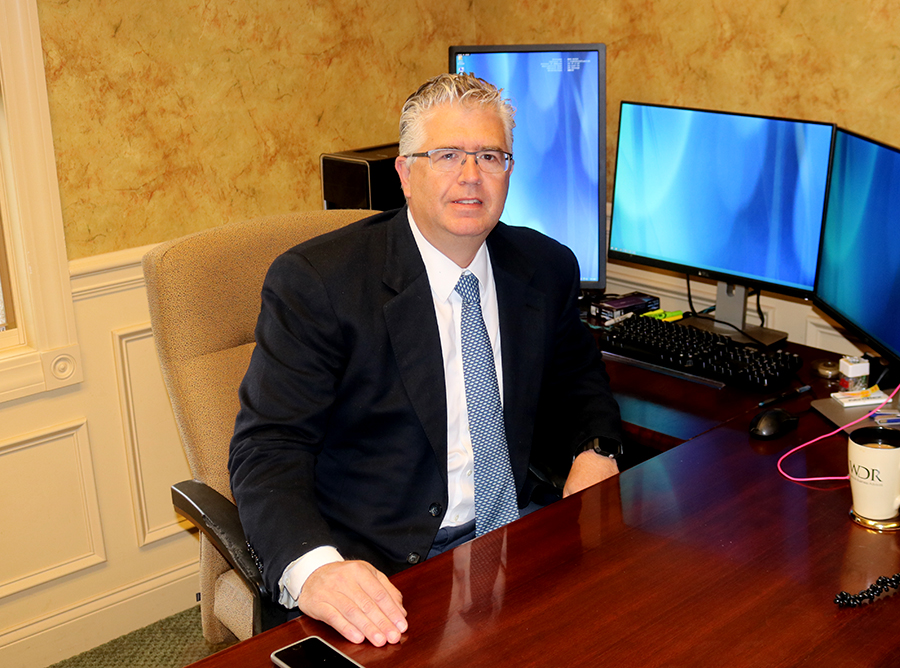
Photo by Jesse Winters
By Jill Nagy
Despite uncertainty about the fate of the U.S. tax code, advice from accountants for year-end tax planning remains similar to what it has always been: Try to accelerate expenses and delay receipts.
If anything, the prospect of possible reductions in tax rates and the elimination of some tax deductions, gives greater credence to that advice.
“There are a lot of unknowns,” said James E. Amell, a CPA in the Queensbury office of Marvin & Co. He expects corporate tax rates to come down but predicts that the Republicans in Congress will not make radical changes.
“They want some durability in what they do,” he said. “They don’t want to see everything changed again when the control of Congress changes.”
Robert Ricciardelli, a CPA and partner at Whittemore, Dowen & Ricciardelli, also in Queensbury, agreed. “It looks like something is going to get done,” he said. “It is tough to plan.”
Defer income, he advised, “even more so than usual.”
Deferring income until 2018 also defers the taxes on that income, possibly into a year when rates are lower. “Hold off on some of you billing,” Amell said.
For a company about to make large investments in a plant or equipment, Ricciardelli advised beginning with a cost segregation study to identify portions of the investment that may be eligible for an immediate write-off or a reduced-depreciation period. The study must be performed by a professional, usually an engineer, he said.
In any case, buy new equipment in 2017 instead of waiting until 2018, he said.
Amell said in some cases, the lead time for the purchase, receipt and installation of new equipment may be too great to be able to complete the transaction this year. A new computer or motor vehicle could arrive in time; other items may not.
If faced with a tax bill due in January, consider paying it in December. Ricciardelli also suggested maximizing contributions to 401(k) or profit-sharing plans, if the business ends the year with profits.
Both suggested paying larger bonuses or making generous contributions to Health Savings Accounts (HSAs). Be sure employees know that these are one-time additional contributions that may not be repeated in future years, Amell added.
Both experts advised looking at alternative scenarios to account for the uncertainty about the future tax situation.
“Be prepared to execute during the last two weeks of December,” Amell said.
He emphasized that his advice applies primarily to businesses that operate on a cash basis, i.e., account for expenses as they are paid for and income as it is received. For a company operating on an accrual basis—accounting for items when payment is due rather than when it is made or received—the timing makes no difference.
The trend of a proposed tax plan is that it will reduce, rather than increase, taxes. Amell said, “It can only be an improvement.”
“Don’t make a stupid economic decision just to save on taxes. Don’t buy something you don’t need just to save on taxes,” said Amell.
